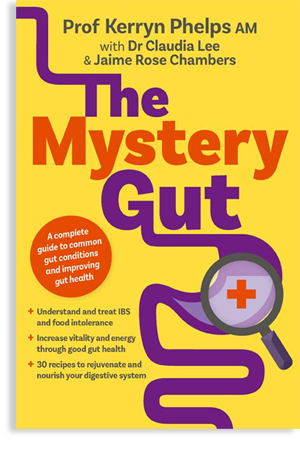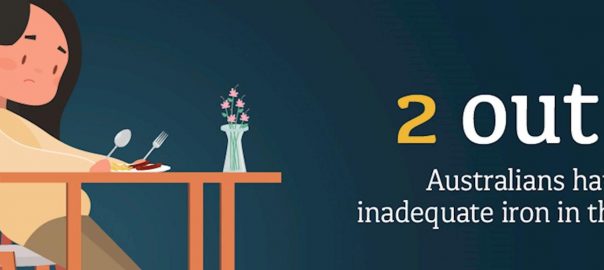People often hear the terms “iron deficiency” or “anaemia”, but what do these terms mean and why is it important? Some research studies have quoted up to 20% of the Australian female population having iron deficiency.1 For women post-pregnancy, this proportion is even higher and can be cause for a number of symptoms. But how do you know if you are “iron deficient”? Then, most importantly, if you are iron deficient, what can you do about it?
We asked Dr Natasha Feingold, an experienced GP who frequently treats iron deficiency at the Bourke Street Clinic, to answer a few questions about this condition and find out what the buzz is all about.
“Iron deficiency is EXTREMELY common. We see it in General Practice everyday and it’s something that can have a significant impact on your life,” says Dr Feingold. “There is a difference between iron deficiency and anaemia: iron deficiency means you don’t have enough iron in your system, which is what’s needed to make healthy red blood cells. Anaemia is when you don’t have enough red blood cells, but it can be caused by all kinds of things, not just iron deficiency.”
Symptoms of iron deficiency include:
– Lethargy
– Headaches
– Dizziness
– Shortness of breath
– Chest pain
– Pale skin
– Palpitations
– Brittle nails
– Painful, inflamed tongue
Research studies suggest that two out of five Australians are having an inadequate amount of iron in their diet2.
“If you have any of the symptoms mentioned, it’s important to have a fasting blood test to check what your haemoglobin and iron levels are,” says Dr Feingold. “If you are iron deficient, it’s also important to investigate what is causing the iron deficiency.”
Being deficient in iron means one (or more) of these three things:
- You are not taking in enough iron in your diet
- You aren’t absorbing iron properly
- You are losing too much iron through blood loss (eg menstruation, GI bleeding)
Dr Feingold has a word of warning, “When I discover that someone is iron deficient, it is of utmost importance to me that each possibility is investigated. I think a lot of patients are just told to go on some iron supplements without properly identifying the actual cause.”
Figuring out why someone is iron deficient includes things like reviewing one’s diet, doing more blood tests (and sometimes stool tests), and sometimes having a camera look inside the gastrointestinal tract. The practitioners at Bourke Street Clinic are well-versed in following up patients who are found to be iron deficient and/or anaemic.
“While we are investigating the cause, it is still very important that iron deficient patients supplement their intake with either tablets or an infusion,” says Dr Feingold.
At Bourke Street Clinic, we are one of the few General Practices in Sydney who can perform our own iron infusions for our patients. Our doctors not only assess you and provide the infusion, but they also monitor you throughout the infusion to ensure your safety. The entire process takes about 30 minutes and many patients can come in on their lunch break and go straight back to work or home without it disrupting their schedule. Public hospitals also offer iron infusions, however, it can take up to half a day to get the procedure done.
“Improving your iron can have amazing effects on one’s health. We are seeing more and more research come out about better outcomes in pregnancy, heart failure, and ADHD, just to name a few conditions,” adds Dr Feingold. “Not only can it boost your energy levels but it can help prevent further complications that can make you really sick. Iron supplementation is such an easy fix, yet some patients aren’t aware that this type of treatment can be done in a general practice setting.”
If you are interested to talk more about iron deficiency and its treatment, don’t hesitate to make an appointment to talk to Dr Natasha Feingold about the process and whether you are an appropriate candidate for an iron infusion.
Reference:
1: Ahmed F, Coyne T, Dobson A, McClintock C. Iron status among Australian adults: findings of a population based study in Queensland, Australia. Asia Pac J Clin Nutr. 2008; 17(1): 40-47.
2: http://www.abs.gov.au/ausstats/abs@.nsf/Lookup/by%20Subject/4364.0.55.008~2011-12~Main%20Features~Iron~402#2


